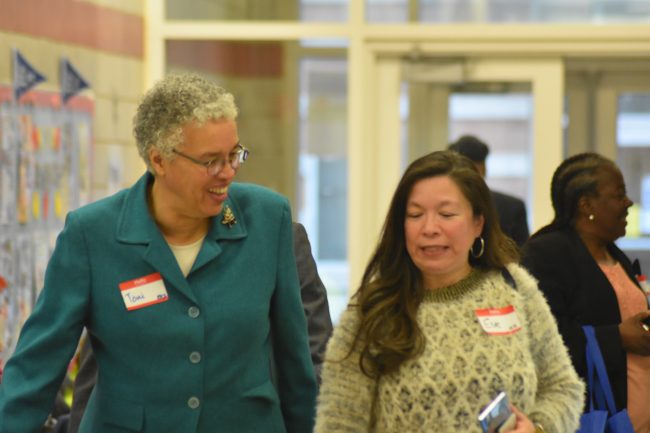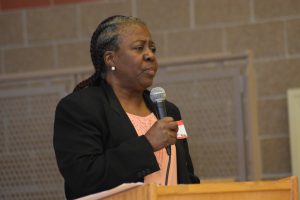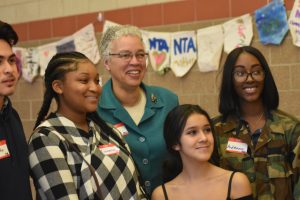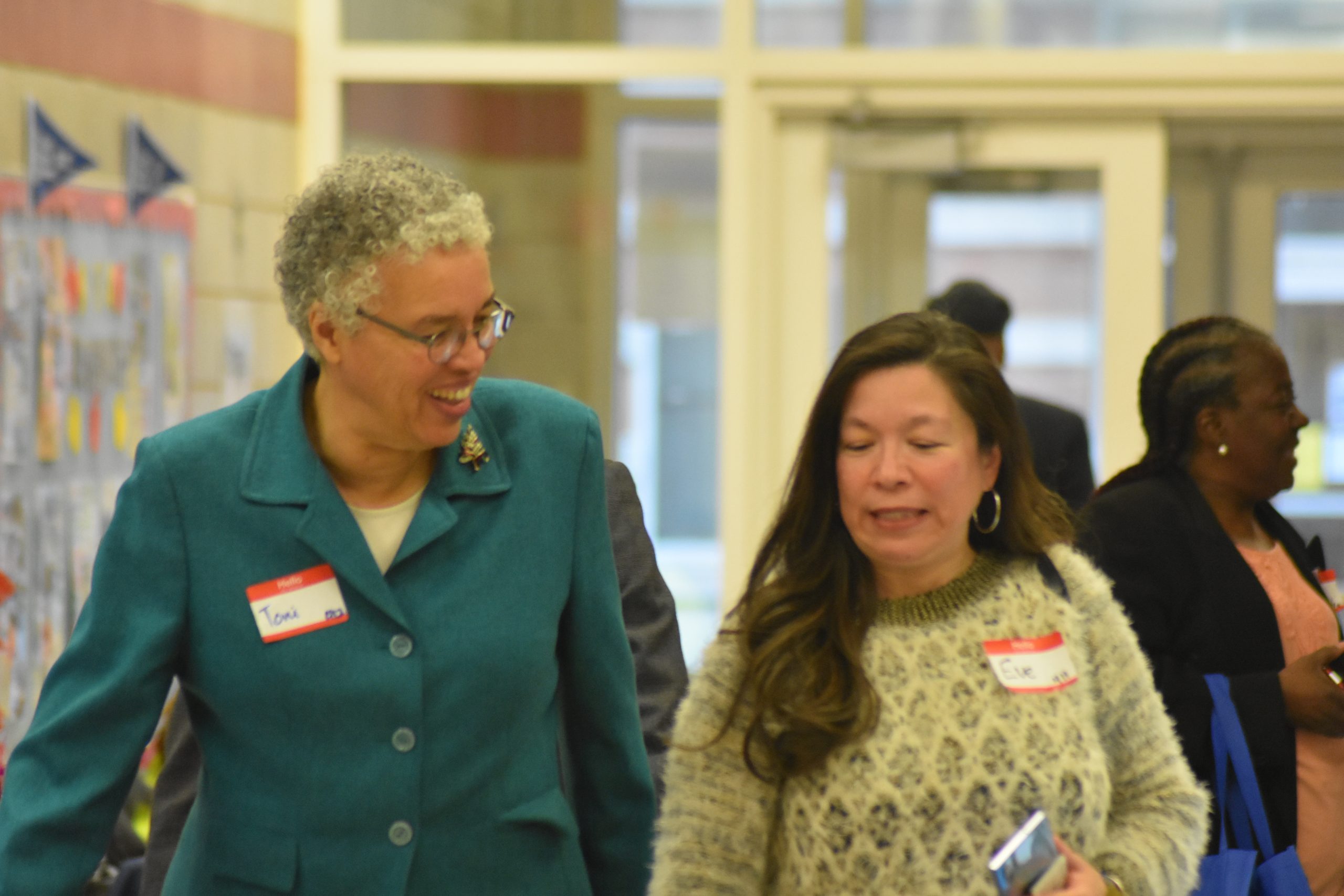|
Getting your Trinity Audio player ready...
|

As a woman stood in front of the crowd speaking on the death of her son and the incarceration of another, the crowd at the Community Engagement sat attentively.
On Dec. 14, 2019, the SIC Community Engagement Coordinator, Kim Davis Ambrose, and many more critical people collaborated and scheduled a community gets together on Cook County safety. At the national Teachers Academy, official remarks were made. Following all of this, the guests all participated in a roundtable discussion.
Among those speaking was a woman whose son was shot in a hit and run and in her words, the men “hit everyone but the people they intended to shot.” Years later her older son was sent to jail for over three years for driving a getaway car in a robbery and she felt lost as to why something like this happened.
This is what the summit is for – to help connect with the community. During the meeting speakers like Amy Campanell shared information about the actions to take after something like this happens. When tragedies like this occur, people are most likely ill-prepared for how to help their loved one and Campanell shared how her office is always open, and as a public defender is willing to help families in situations like this.
“We don’t want just the mother sitting on the other side, she needs her community next to her. She needs her community next to her. She needs people going with her to court helping her understand what just happened to her loved one who stood in front of that judge,” declared Campanell.
 “We know – slavery started 400 years ago, we know the unfair treatment that people have had. And it’s not just in the criminal justice system – it’s everywhere,” says Clerk of Circuit Court, Dorothy Brown. The use of deadly force against black and brown people is not where the unfairness ends and Brown attests that “we all know what the problem is” but it is the questions of why “can’t we all just simply stop and change that.”
“We know – slavery started 400 years ago, we know the unfair treatment that people have had. And it’s not just in the criminal justice system – it’s everywhere,” says Clerk of Circuit Court, Dorothy Brown. The use of deadly force against black and brown people is not where the unfairness ends and Brown attests that “we all know what the problem is” but it is the questions of why “can’t we all just simply stop and change that.”
Brown stated that when you give back to your community you need to be “an example for the change.” As she talked to the crowd she discussed how you can change the laws or even the judges that contribute to these unfair arrests, but if they keep arresting the same diasporic group of people “what have we really done?”
There are layers of bias and discrimination in people’s minds, but those who protest against it have to “get it into people’s heads” to treat people right. To those attending this event, it is the start of the discussion on the incarceration cycle – something that you have to be committed to “all day every day.”
It is important to know that this did not happen in a day. Fighting for an opportunity to even discuss incarceration in a public forum took years, but it is a step in the right direction. Last year we were not talking about the relevance of today’s crime cycle but today we see it as mandatory to connect today’s events with the past and recognizing it for what it is – a cycle of chains.
During this action summit, it is more about what you can do when you enter your homes, by yourself, to commit to being a part of that change instead of just talking about it. Millions of people can write, talk, and post about how you “protest against injustices,” but the Summit also stressed the importance of knowing just how common violence like this is. Here men and women could come together with the intent to find a common interest in wanting to prevent the unjust violence and dire repercussions of incarcerations from affecting the future generation.
Solving the issue of incarceration and biased violence looks like this. It is coming together, connecting with politicians and working/lower class to identify flaws in each system of our society.
Thanks to the McCarther foundation and efforts from those supporting the ambitions of the action summit and its journey to involving everyone in the community with stopping the unjust incarceration of black, brown, and Hispanic communities.
This was not the first time the National Teachers Academy housed an Engagement meeting on the Cook County Incarceration and it will not be the last.
Written by Brielle R. Buford
Featured and Top Images Courtesy of Gricelda Chandler



